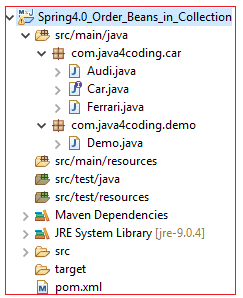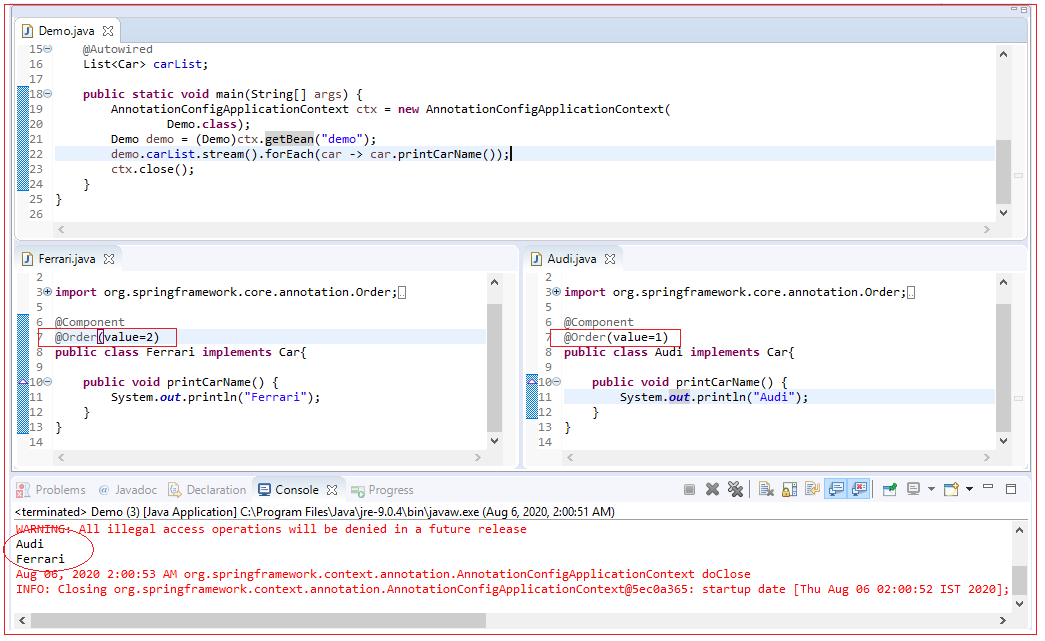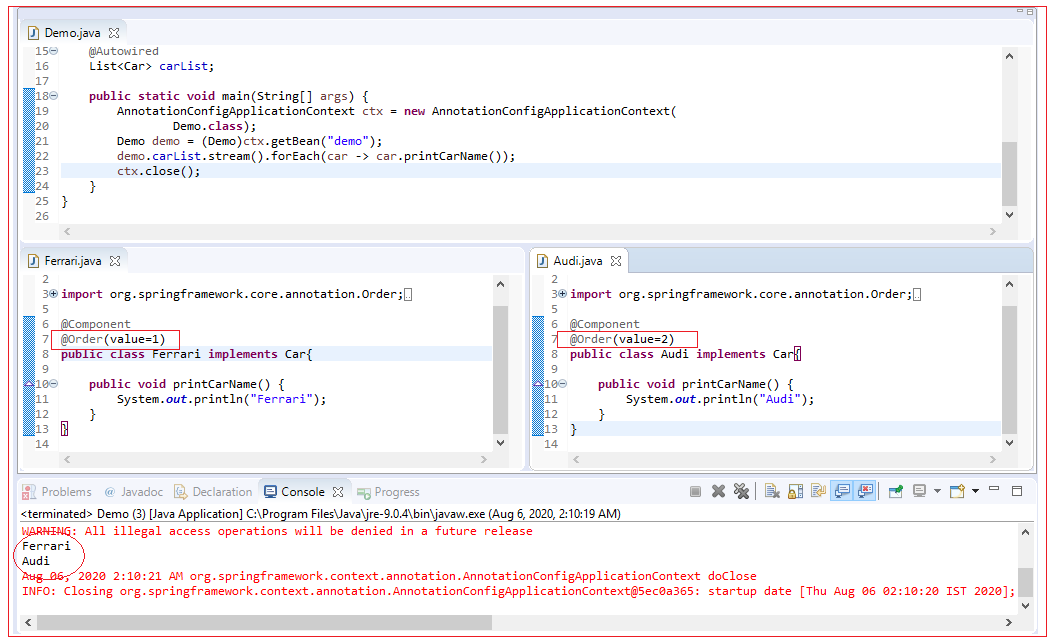| ☰ See All Chapters |
Spring @Order Annotation
Spring 4.0 supports the ordering of injected bean to a collection through @Order annotation. This feature may be used to add beans in a specific order into a collection (i.e. via @Autowired). The value attribute of @Order annotation accepts integer value which represents the precedence. Lower number has the higher the precedence. Lower numbers indicate a higher priority.
Let us see an example for spring @Order annotation.
Spring Order Annotation Example
pom.xml
<project xmlns="https://maven.apache.org/POM/4.0.0" xmlns:xsi="https://www.w3.org/2001/XMLSchema-instance" xsi:schemaLocation="https://maven.apache.org/POM/4.0.0 https://maven.apache.org/xsd/maven-4.0.0.xsd"> <modelVersion>4.0.0</modelVersion> <groupId>com.java4coding</groupId> <artifactId>Spring4.0_ORDER_to_Order_Beans_in_Collection</artifactId> <version>0.0.1-SNAPSHOT</version>
<dependencies> <dependency> <groupId>org.springframework</groupId> <artifactId>spring-core</artifactId> <version>${spring.version}</version> </dependency> <dependency> <groupId>org.springframework</groupId> <artifactId>spring-context</artifactId> <version>${spring.version}</version> </dependency> <dependency> <groupId>org.springframework</groupId> <artifactId>spring-aspects</artifactId> <version>${spring.version}</version> </dependency> </dependencies>
<properties> <spring.version>4.2.4.RELEASE</spring.version> </properties>
</project> |
Car.java
package com.java4coding.car;
public interface Car { public abstract void printCarName(); } |
Audi.java
package com.java4coding.car;
import org.springframework.core.annotation.Order; import org.springframework.stereotype.Component;
@Component @Order(value=2) public class Audi implements Car{
public void printCarName() { System.out.println("Audi"); } } |
Ferrari.java
package com.java4coding.car;
import org.springframework.core.annotation.Order; import org.springframework.stereotype.Component;
@Component @Order(value=1) public class Ferrari implements Car{
public void printCarName() { System.out.println("Ferrari"); } } |
Demo.java
package com.java4coding.demo;
import java.util.List;
import org.springframework.beans.factory.annotation.Autowired; import org.springframework.context.annotation.AnnotationConfigApplicationContext; import org.springframework.context.annotation.ComponentScan; import org.springframework.context.annotation.Configuration;
import com.java4coding.car.Car;
@Configuration @ComponentScan(basePackages = { "com.java4coding.car" }) public class Demo { @Autowired List<Car> carList;
public static void main(String[] args) { AnnotationConfigApplicationContext ctx = new AnnotationConfigApplicationContext( Demo.class); Demo demo = (Demo)ctx.getBean("demo"); demo.carList.stream().forEach(car -> car.printCarName()); ctx.close(); } }
|
Project Directory Structure

Output:


All Chapters

